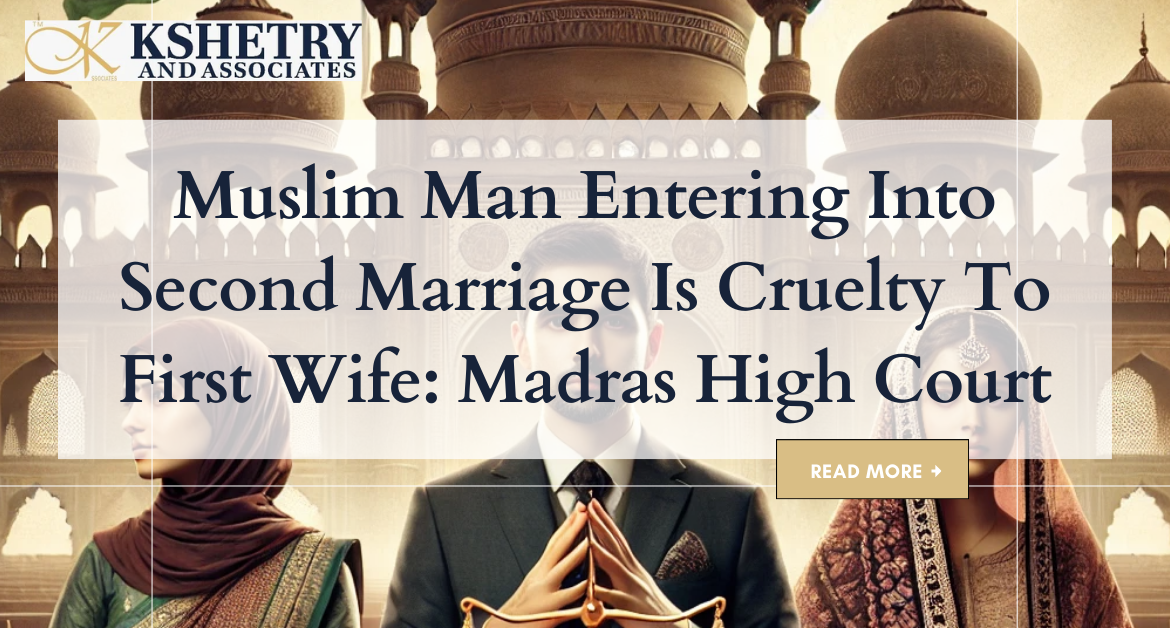Recently, the Madras High Court ruled in a landmark ruling that a Muslim man entering into a second marriage is cruelty to his first wife.
The case involved a couple who were married in 2010, and the wife claimed that they had been subjected to unnatural sexual activities and other sorts of mistreatment. The court determined their marriage was still enforceable because the husband could not obtain a court order to validate the divorce. As a result, the court upheld the earlier decisions and mandated that the husband pay ₹25,000 per month in child support and ₹5 lakh in compensation for domestic abuse.
Impact of Madras High Court Ruling on Women’s Rights and Personal Law Reforms
According to Justice G.R. Swaminathan, who issued the ruling, while Muslim men are constitutionally allowed to have up to four wives, the first wife may suffer severe mental trauma if a second marriage is entered into without the first being properly dissolved. The court decided that this conduct of bigamy not only violates the first wife’s rights but also gives her the ability to sue for damages under the Protection of Women from Domestic Violence conduct of 2005.
Even though religious personal rules may permit numerous marriages, the ruling of the Madras High Court makes it clear that the law would not tolerate the mistreatment of women. By labeling the husband’s behavior as “cruelty,” the court acknowledged the significant emotional and psychological damage that the first wife may suffer as a result of such behavior.
The ruling also highlights the need for a more responsible and consistent way of dissolving a marriage. The court criticized the reliance on Shariat council decisions, arguing that only state-recognized courts can decide divorce matters. This view highlights how crucial it is to ensure that specific laws adhere to the equality and justice principles outlined in the Constitution.
The Madras High Court’s ruling is significant in light of the continuing discussions over the reform of India’s personal laws. The case is a clear reminder that, despite deeply ingrained cultural and religious customs, women’s rights must always come first.
Additionally, this decision has wider ramifications for the defense of women’s rights in the Muslim community. The court has made it possible for more women to pursue legal action in comparable circumstances by proving that a second marriage without the dissolution of the first can be considered harsh. This could give women the confidence to question patriarchal expectations and claim their legitimate societal position.
Advancing Gender Justice: The Need for Inclusive Personal Law Reform in India
In the future, lawmakers and the judiciary will need to continue addressing the structural problems that support gender-based discrimination, especially those related to personal legislation. The Madras High Court’s ruling sets a strong precedent, demonstrating the courts’ readiness to protect women’s fundamental rights despite intricate religious and cultural considerations.
This case of a Muslim man entering into a second marriage is cruelty to his first wife highlights the need for a thorough and inclusive strategy that balances protecting individual rights and dignity and preserving religious and cultural identity as the conversation on personal law reform picks up steam. Until we adopt such a comprehensive framework, we cannot guarantee that all Indian citizens, regardless of their religious affiliation, will experience the fairness and equality promised by the Indian Constitution.
In this case, the Madras High Court’s decision that a Muslim man entering into a second marriage is cruelty to his first wife represents a significant advancement in the continuous fight for gender justice and women’s empowerment in India. It is a ray of hope, spurring additional social and legal changes to address the systemic injustices that still afflict our country.
Also Read: GDPR vs. India’s Data Protection Laws: Key Differences and Compliance Tips

